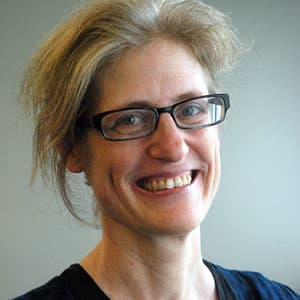Advertisement
Advocates Seek To Help Boston Students With Disabilities Transition Into Workforce
ResumeA task force focusing on expanding opportunities for Boston teenagers and young adults with disabilities released a comprehensive report Saturday morning.
The group wants to find ways to expand post-academic employment opportunities for 14- to 22-year-olds receiving special education.
Jerry Mogul, executive director of Massachusetts Advocates for Children, joined Weekend Edition Saturday to discuss the group's new plan.
_
Interview Highlights:
On the 'service cliff,' the challenges facing young people with disabilities:
Jerry Mogul: "In Boston, in that age range, there are 4,300 public school students with disabilities of all types and severities. What they share in common is that each one has unique talents and skills like any young person that needs to be nurtured and supported so that they can succeed in life. Now what they face in school is a system that has historically neglected to afford them their right to what's called "transition services." To first access their individual interests and strengths and then to develop a plan and provide them with some work-based learning opportunities, and now, I say historically because over the past few years, and very much with the new BPS [Boston Public Schools] administration, we're very pleased that there has been a very strong commitment to change and to do a better job."
"When they're out of school, they face different kinds of barriers. There's a confusing array of state agencies and other services with different eligibility requirements, policies and procedures that are really hard for young adults and they're families to navigate. Parents call this the 'age 22 service cliff,' because at that age, eligibility is not guaranteed, but is based on state-funding levels. And many young adults can lose their services, and it's a very, very difficult situation for them and for their families."
On what the leading actions and steps being recommended to address these issues:
JM: "The schools, for example, will be working to make sure that all the young people get their assessments, that they teach themselves advocacy skills and that they expand the number of work-based opportunities for young people to experience. We need to provide training and information. Throughout the system, there is a tremendous lack of knowledge among providers, among parents, among youth. For example, hidden disabilities — many young people have hidden disabilities, and people who work with young people ... if they don't understand and know about these hidden disabilities that kids have, and if kids don't disclose, they're going to struggle, and they're going to fail."
"We need to expand the capacity of public colleges to provide more support to young people, so when they do go to college, they can remain there, and they can stay and they can graduate. And we need to make sure there are more businesses that can successfully hire and retain young people. So there is a lot to do. It cuts across many different sectors and systems. It's not just schools. It's not just state agencies. It involves young people learning how to self-advocate."
On how even when resources exist, families struggle to navigate the system:
JM: "We hear that too, all the time. We've put together a resource guide for that purpose, but it's only a start. There needs to be a central place so that families can call in to learn how to navigate the system, especially when [their children] are outside of school. If they're in school, then it's really important for families to make sure that the schools provide them with what they're supposed to provide. ... But once they've graduated or once they leave school, it is a real problem."
On how such a huge issue has managed to go unresolved for so long:
JM: "One of the challenges is that it's unlike any other kind of activity in a school, because they really have to go outside the four walls of the school. It's not just about doing a better job of teaching, but they've got to establish relationships with employers, with job developers. They've got to understand the labor market. It's complicated for schools ... There's also still the stigma. There's also still a sense that if a young person has a disability, 'they can't.' So they're not provided with the individualized support. There's not an assumption of competence. There's not an understanding that these young people have talents and skills and dreams like any other young person."
This article was originally published on October 24, 2015.
This segment aired on October 24, 2015.
